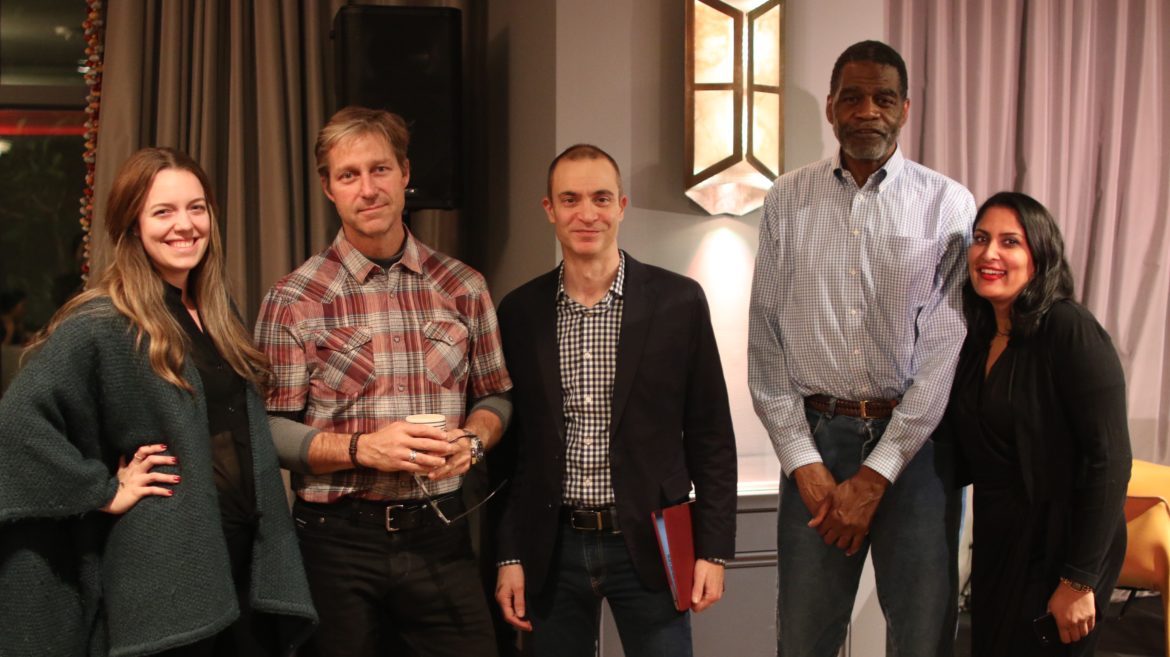Is AI sexist? That’s the question that kickstarted the conversation on the evening of November 16 at the Battery in San Francisco. In the cozy lighting of the Parlor Room, men and women of all professions came together to listen to four panelists and engage in an open discussion around the issue of sexism in artificial intelligence.
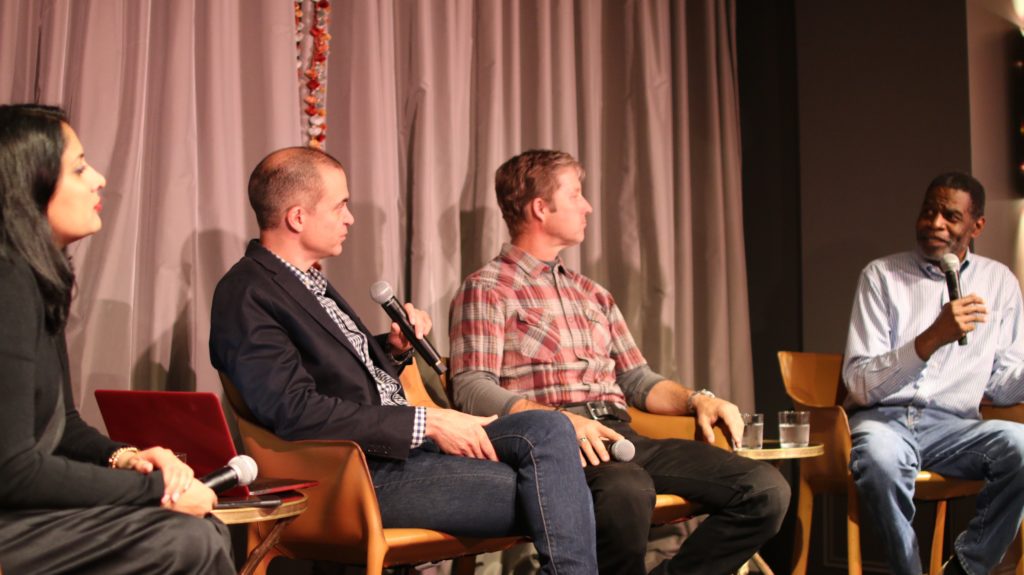
Photo by Tiffany Rika Russell
After planned panelist Falon Fatemi, founder and CEO of Node.io, was unable to attend, Lipstick & Politics Editor-In-Chief Mira Veda, the host of the event, stepped in as a panelist. The other panelists included Paul Smith, COO of Botanic Technologies and Tom Lamar, Director of Strategic Partnerships at Node.io, who stepped in for Fatemi. The panel was moderated by Sean Captain, journalist and tech writer at Fast Company. After Fatemi dropped out, and Veda realized the panel was all male, she joked that the men would all “identify as women for the night” in order to have a relevant discussion about sexism in artificial intelligence. The panelists discussed their experiences with sexism in AI from the perspective of a company insider, and then opened up the conversation to the audience.
The audience was extremely engaged. They drew from their experiences in a variety of fields to have an honest and stimulating conversation about the issue of sexism in AI, as well as possible ways to mitigate the problem and prevent more “-isms” in AI in the future.
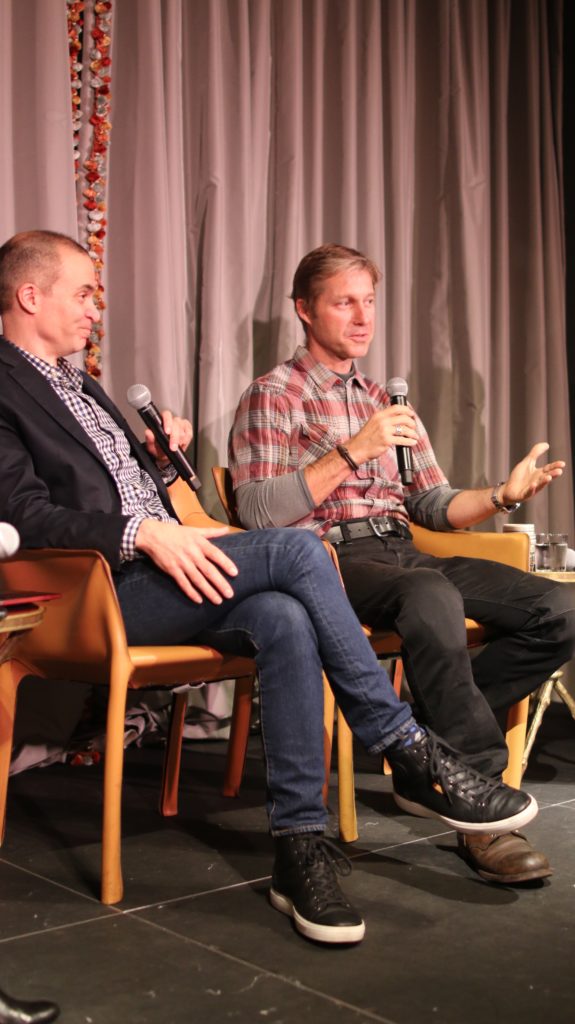
Photo by Tiffany Rika Russell
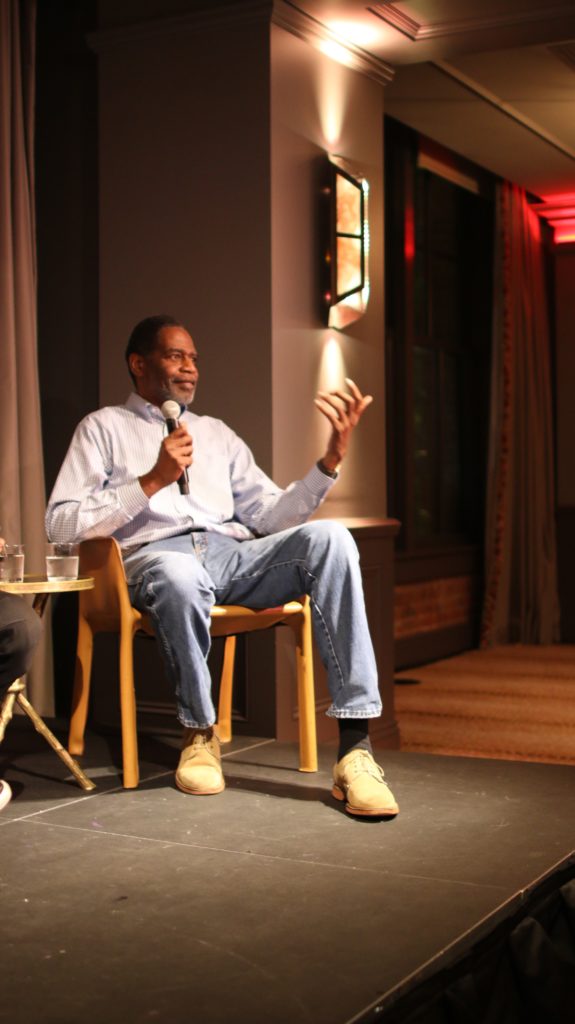
Photo by Tiffany Rika Russell
A resounding solution, from both panelists and audience members alike, was to have more women running tech companies, as well as women involved in the creation process of AI. It was interesting to hear the panelists’ perspective because they explained the pressure to succumb to the sexism embedded in everyday society from a business perspective.
In other words, according to Smith, “female” bots work better as teachers, whereas “male” bots work better as instructors. And by sticking to this distinction, although a sexist one, Botanic’s product will be more likely to succeed.
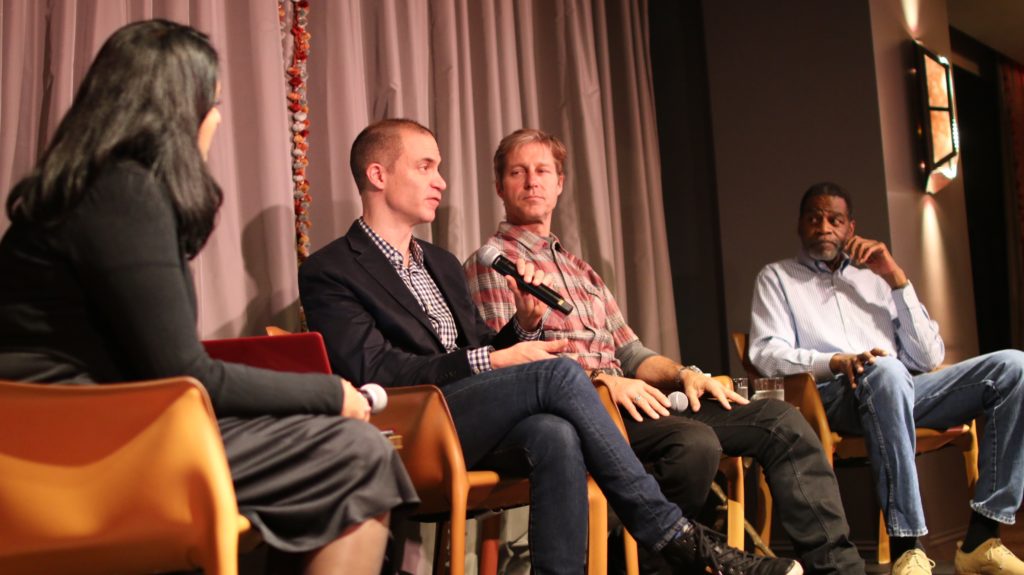
Photo by Tiffany Rika Russell
Overall, the panelists and audience came to the conclusion that first, everyone must decide what the desired outcome is. Once we all come to agree on what we want and don’t want from artificial intelligence, hopefully progress can be made that satisfies everyone. So if a more egalitarian world is what we all want, then engineers have to intervene in the creation of the software. And that’s a possibility many are considering. Eric Horvitz, director of Microsoft Research, told Wired that, “It’s a really important question—when should we change reality to make our systems perform in an aspirational way?”
By: Cianna Allen

